Introduction
Precision Injection Mold, a game-changer in modern manufacturing, has transformed the way intricate plastic parts are produced with unparalleled accuracy and efficiency. This comprehensive guide delves into the intricacies of precision injection molding, its applications across various industries, and the key factors driving its widespread adoption.
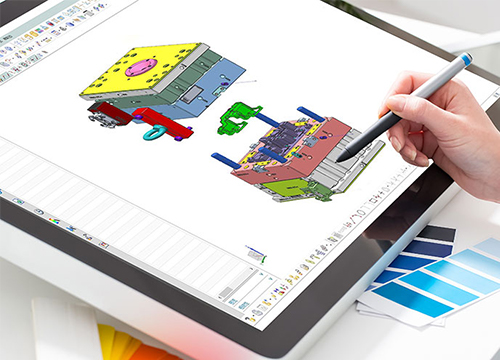
Understanding Precision Injection Mold
Precision injection molding stands as a pinnacle in modern manufacturing techniques, characterized by its intricate process of injecting molten plastic material into meticulously designed mold cavities under immense pressure. This meticulously controlled process facilitates the creation of complicated and complex plastic parts with unparalleled precision and accuracy, perfectly aligning with the rigorous demands of contemporary applications.
Critical Components of Precision Injection Mold
1. Mold Design:
Precision injection molding begins with meticulous mold design, which is the foundation of the entire process. Mold designers optimize part geometry to ensure moldability, minimize material waste, and enhance cooling efficiency to prevent defects like warping and sink marks. Every aspect of the mold, from the gating and runner system to the venting and ejection mechanism, is carefully planned to achieve optimal results.
2. Manufacturing Process:
The manufacturing process of precision injection molds is a multi-step procedure that demands precision and expertise. It typically involves rough machining of the mold cavity and core, followed by heat treatment to enhance the material’s hardness and durability. Precision machining techniques, such as CNC (Computer Numerical Control) milling and EDM (Electrical Discharge Machining), are employed to achieve the desired shape and surface finish. Subsequently, the mold undergoes surface finishing processes like polishing and texturing to meet specific requirements.
3. Material Selection:
Choosing materials for precision injection molds is critical to their performance and longevity. High-quality tool steels, such as P20, H13, and S7, are commonly used for their excellent wear resistance, toughness, and ability to maintain dimensional stability under high temperatures and pressures. Advanced materials like stainless steel and aluminum alloys are also employed in certain applications to meet specific performance criteria. The appropriate material selection depends on the expected production volume, part complexity, and environmental conditions.
4. Cooling System Design:
Efficient cooling is essential for maintaining uniform temperatures throughout the mold cavity during the injection molding. Proper cooling helps reduce cycle times, minimize part warping, and improve overall part quality. Mold designers carefully plan the layout of cooling channels within the mold to ensure optimal heat transfer and uniform cooling rates. Advanced cooling technologies, such as conformal cooling, are also employed to enhance cooling efficiency and achieve more consistent part quality.
5. Quality Control Measures:
Quality control is integral to precision injection molding to ensure that every molded part meets the required specifications and standards. Comprehensive inspection and testing protocols are implemented throughout manufacturing to identify and address deviations or defects. Advanced metrology tools, such as coordinate measuring machines (CMMs) and optical inspection systems, verify dimensional accuracy and surface finish. Additionally, process monitoring systems and statistical process control (SPC) techniques are employed to maintain consistency and traceability in production.
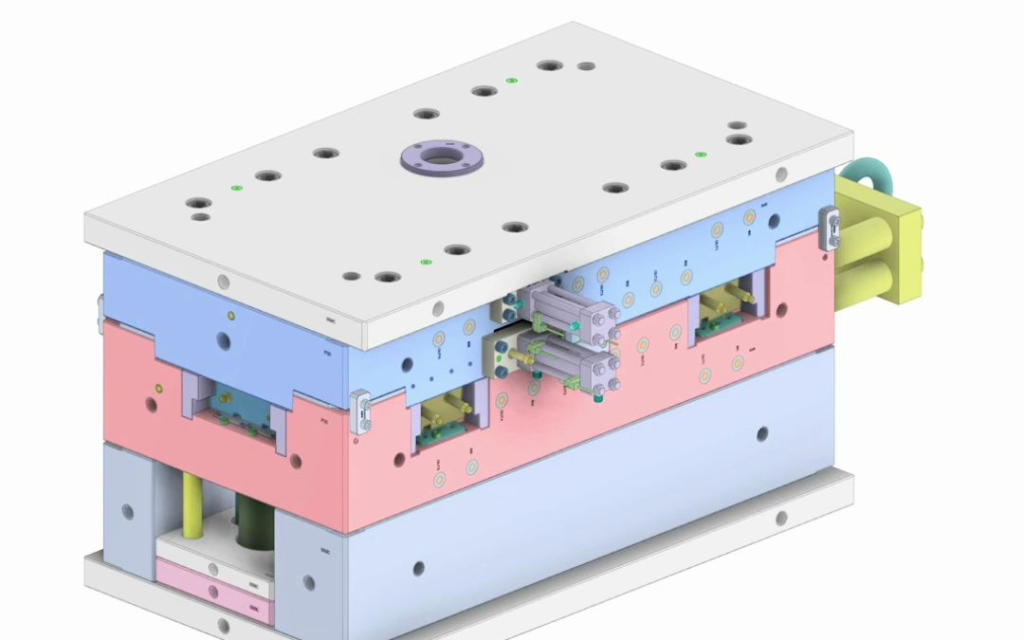
Applications of Precision Injection Mold
1. Automotive Industry:
Precision injection molds are integral to the automotive industry, where they manufacture various components, including interior and exterior parts. These components include dashboard panels, door handles, trim pieces, and intricate automotive lighting systems. The ability to produce parts with tight tolerances and complex geometries ensures that automotive manufacturers can achieve their vehicles’ desired aesthetics and functionality.
2. Electronics Sector:
In the electronics sector, precision injection molding is essential for producing various components used in electronic devices. Connectors, housings, and enclosures are just a few examples of components that rely on precision injection molds for manufacturing. With the increasing demand for smaller and more compact electronic devices, precision injection molding enables manufacturers to produce parts with precise dimensions and intricate features, meeting the requirements of modern electronic devices.
3. Medical Field:
Precision injection molding plays a crucial role in the medical field, where the highest levels of precision and quality are paramount. Medical devices, implants, and disposable components are manufactured using precision injection molds to meet stringent regulatory standards and ensure patient safety. From syringes and surgical instruments to implantable devices and diagnostic equipment, precision injection molding enables the production of high-quality medical products that improve patient outcomes and enhance healthcare delivery.
4. Consumer Goods:
Precision injection molding is ubiquitous in the consumer goods industry, where it is used to manufacture a wide range of products, from packaging to appliances. In the packaging industry, precision injection molding produces containers, caps, and closures that are aesthetically pleasing but also functional and durable. In the appliance industry, manufacturers use precision injection molding to produce components such as knobs, handles, and housings, ensuring that appliances have both style and reliability. Additionally, industries such as toys, sporting goods, and household products utilize precision injection molding, where high-quality, precision-engineered components are essential to meet consumer expectations.
By leveraging the capabilities of precision injection molding, manufacturers across various industries can produce high-quality, intricate parts that meet the demands of modern applications and contribute to advancing technology and innovation.
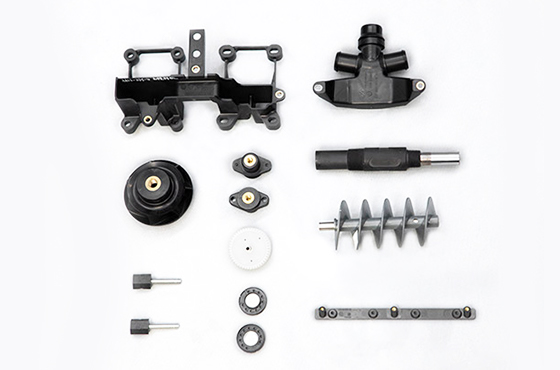
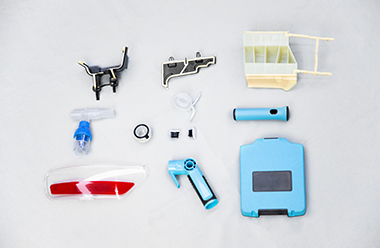
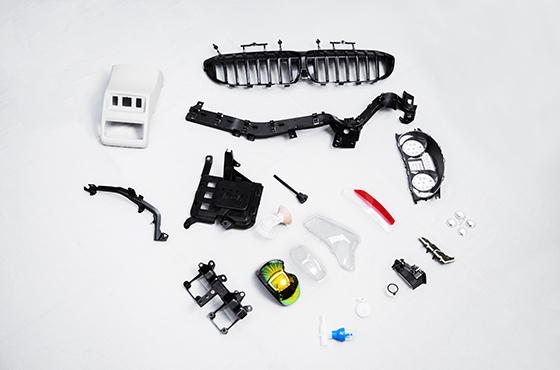
Advantages of Precision Injection Molding Over Conventional Methods
1. Unmatched Precision and Accuracy:
Precision injection molding sets itself apart from conventional methods by delivering unparalleled precision and accuracy. While traditional techniques may suffice for basic part geometries, precision molding produces components with intricate details and extremely tight tolerances. This level of precision is indispensable in industries like aerospace, automotive, and medical, where even minor deviations can impact performance and safety.
2. Cost-efficiency Despite Initial Investment:
Despite the initial investment required for mold design and setup, precision injection molding is highly cost-effective for large-scale production runs. While conventional methods may seem more economical upfront, the superior consistency and quality of precision molding translate to long-term savings. With reduced scrap rates and minimal rework, manufacturers can achieve higher overall efficiency and lower per-part costs over time.
3. Unparalleled Versatility and Customization:
Precision injection molding offers unmatched versatility and customization options compared to conventional techniques. Additionally, while traditional methods may limit manufacturers to standard designs and features, precision molding empowers them to create highly tailored parts to meet specific requirements. Moreover, precision molding can accommodate diverse design needs, ensuring flexibility and adaptability in manufacturing processes. Whether it’s intricate textures, complex geometries, or unique material combinations, precision molding provides the necessary flexibility to achieve desired outcomes.
4. Minimized Waste and Scrap:
The precision and efficiency of precision injection molding lead to significantly reduced material waste and scrap rates compared to conventional methods. Conventional processes often result in a higher volume of defective parts due to inconsistencies in molding conditions. In contrast, precision molding ensures uniform material distribution, optimized cooling, and precise control over processing parameters, resulting in minimal waste and scrap. This lowers manufacturing costs and contributes to environmental sustainability by minimizing material consumption and waste generation.
By harnessing the advantages of precision injection molding over traditional methods, manufacturers can elevate their production operations’ quality, efficiency, and cost-effectiveness, gaining a competitive edge in today’s demanding market landscape.
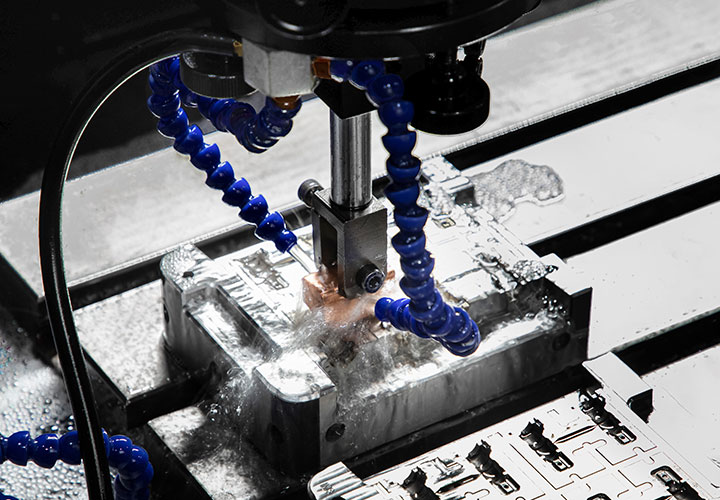
Future Trends in Precision Injection Mold Technology
Integration of Industry 4.0:
The future of precision injection molding lies in integrating Industry 4.0 technologies. Manufacturers can revolutionize their operations by adopting IoT (Internet of Things), AI (Artificial Intelligence), and data analytics. Real-time monitoring of critical parameters such as temperature, pressure, and cycle times enables proactive maintenance and process optimization. Predictive analytics algorithms can anticipate potential issues, reducing downtime and enhancing efficiency.
Advancements in Materials and Additive Manufacturing:
The continuous evolution of materials science and additive manufacturing techniques expands the horizons of precision injection molding. Innovations in material formulations and processing methods are unlocking new possibilities, allowing for using novel materials with enhanced properties. Additive manufacturing technologies such as 3D printing enable the creation of intricate mold designs and complex geometries, pushing the boundaries of what is achievable in precision molding.
Focus on Sustainability Initiatives:
As environmental concerns take center stage, the precision injection molding industry embraces sustainability initiatives. Manufacturers increasingly adopt eco-friendly materials and processes to minimize their carbon footprint and reduce waste generation. From biodegradable polymers to energy-efficient manufacturing practices, sustainability is becoming a driving force in shaping the future of precision injection molding. By prioritizing sustainability, companies can meet regulatory requirements and appeal to environmentally conscious consumers, gaining a competitive edge in the market.
Professional Plastic Injection Mold Makers With 15+ Years Experience
At FDX Molding, we pride ourselves on being professional plastic injection mold makers with over 15 years of experience in the industry. Since our establishment in 2007, we have dedicated ourselves to providing high-quality mold-making services to our clients worldwide.
We have completed numerous injection mold projects spanning various industries throughout our journey. Through these partnerships, we have developed our extensive experience and expertise in mold design and injection mold making. Each project has contributed to our wealth of knowledge and understanding of the unique requirements associated with different types of products.
Whether you require precision injection molds for automotive components, electronics, medical devices, or consumer goods, you can rely on us to deliver tailored solutions that meet your needs. Our commitment to excellence and advanced manufacturing capabilities ensure we can provide suitable injection mold solutions to bring your ideas to life.
Partner with FDX Molding for your next injection mold project, and let us help you achieve your goals with precision, efficiency, and reliability.
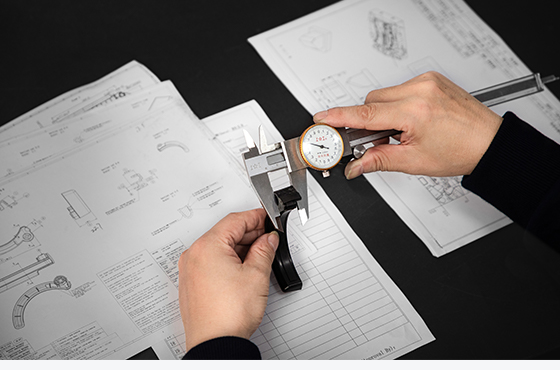
Conclusion
Precision Injection Mold has emerged as a cornerstone of modern manufacturing, enabling the production of intricate plastic parts with unparalleled precision and efficiency. As industries continue to evolve and demand higher quality and customization, precision injection molding will play an increasingly pivotal role in shaping the future of manufacturing.
